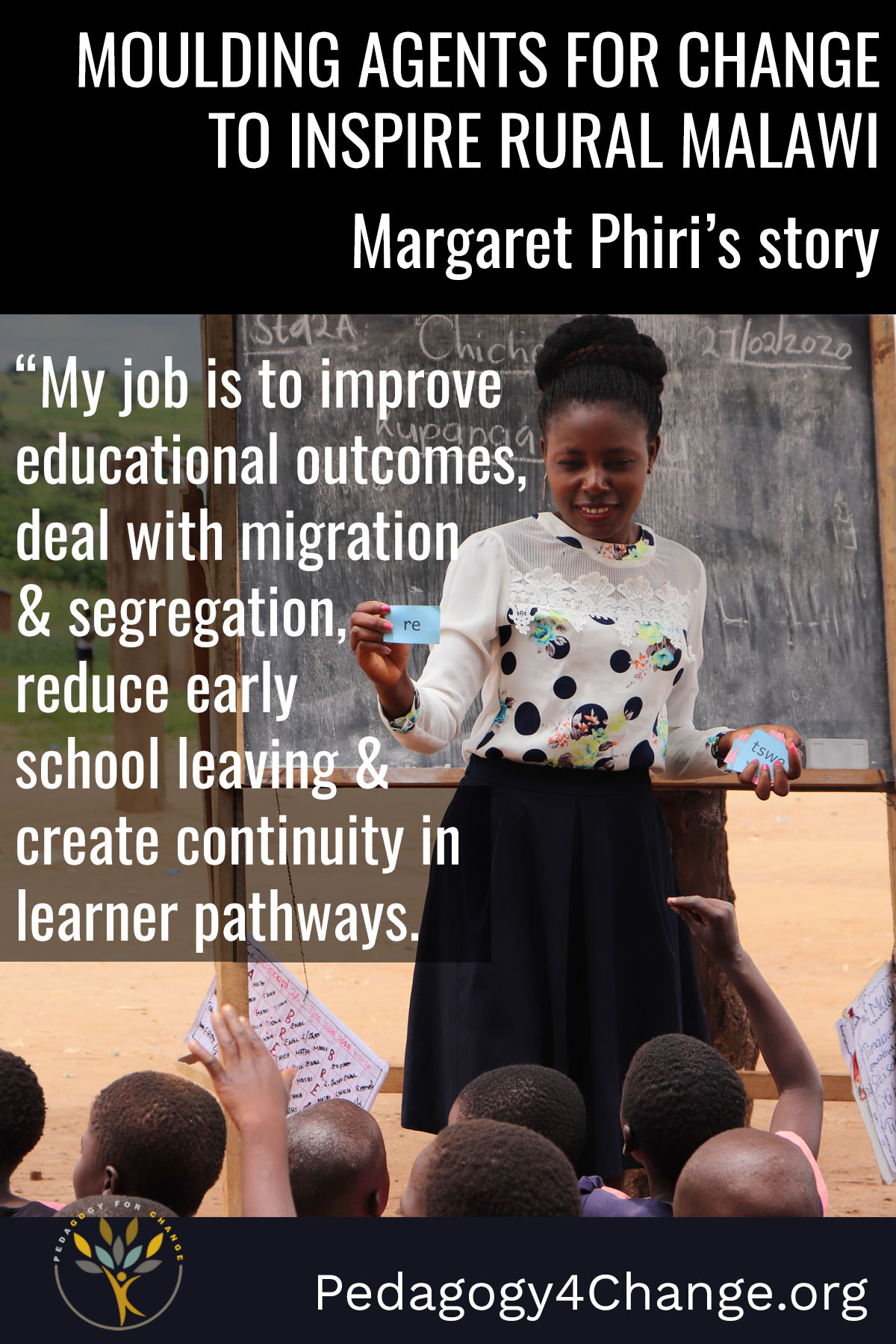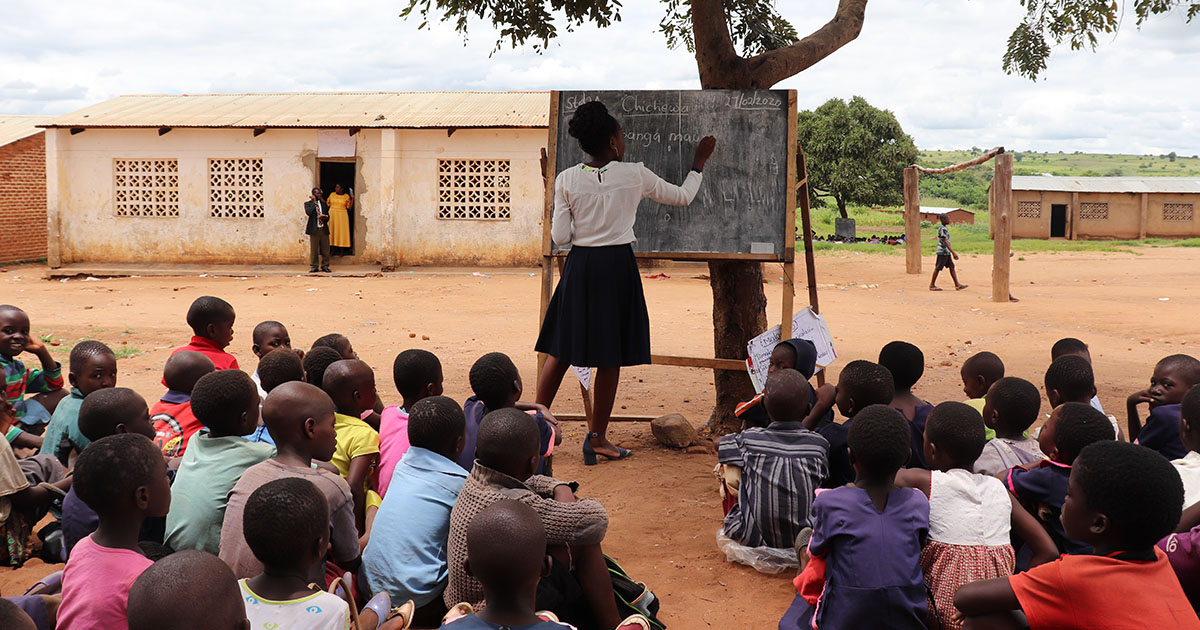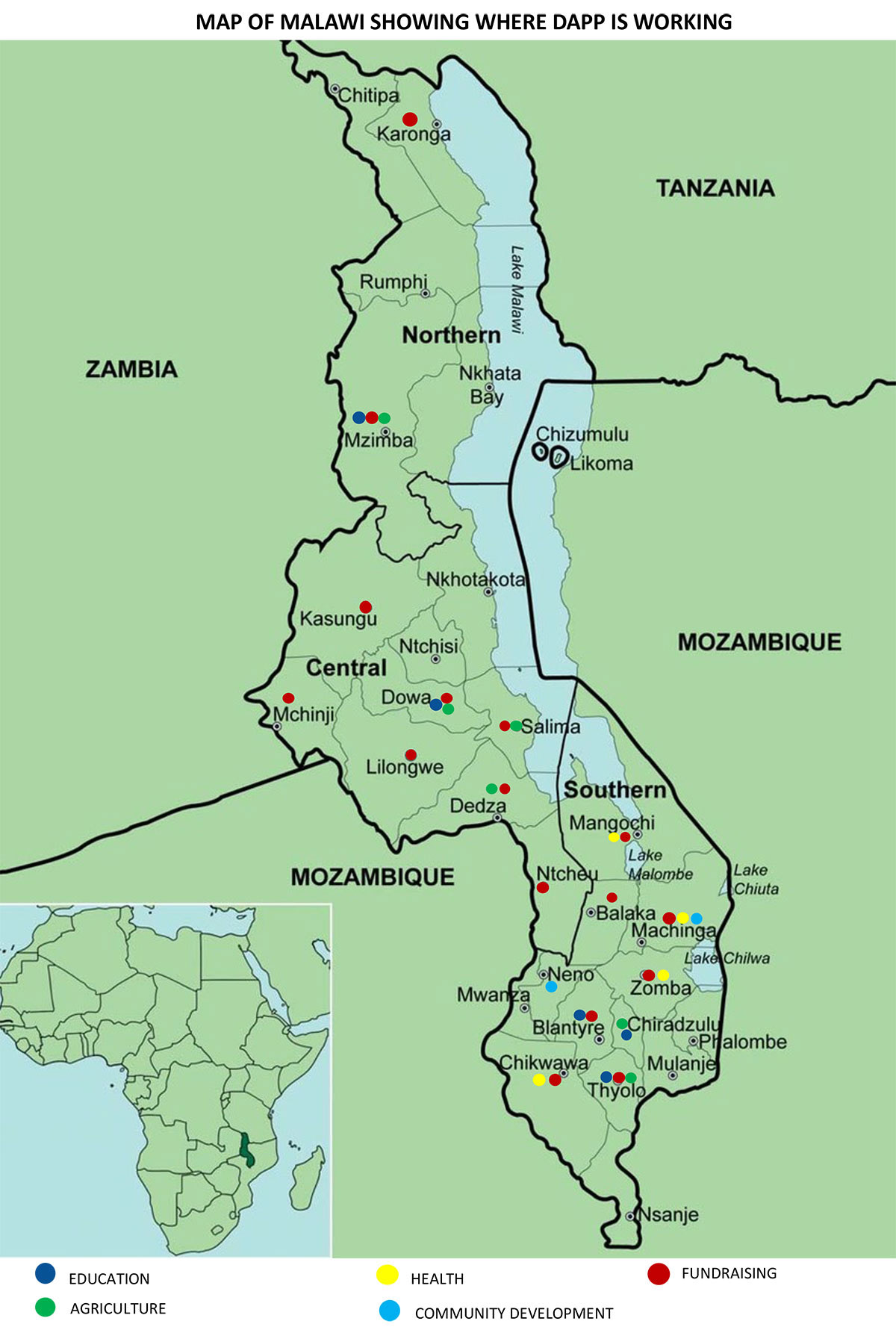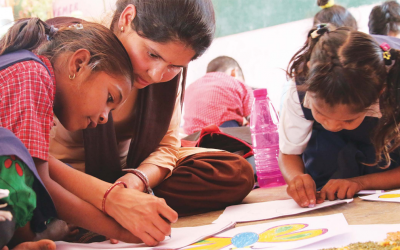



Moulding agents of change to inspire rural Malawi
Moulding agents of change to inspire rural Malawi
Teachers: Leading in crisis, reimagining the future
On World Teacher Day 2020 we gather under the theme “Teachers: Leading in crisis, reimagining the future”. The day provides the occasion to celebrate the teaching profession worldwide, take stock of achievements, and draw attention to the voices of teachers, who are at the heart of efforts to attain the global education target of leaving no one behind.This provides us with the opportunity to share this article by Watipaso Mzungu who has interviewed one of the graduates from DAPP Malawi’s teacher training colleges.


Margret Phiri is a teacher at Chimwasongwe Full Primary School on the outskirts of Lilongwe. She confesses that she joined the profession by accident. Read her motivational story here.
“I never, in all my life, dreamed of becoming a teacher. My ambition was to become a nurse or join any other profession except teaching,” Phiri, who turned 29 this year, explains.
But as fate would have it, her applications to nursing colleges hit a snag. Frustrated, Phiri applied for a place at Development Aid for People to People (DAPP) Dowa Teachers Training College (TTC) in 2012 and she was successful.
DAPP Dowa TTC is one of the four DAPP TTCs established to train male and female youth to become primary school teachers for rural areas in Malawi. Once trained, these teachers become qualified and trained in both primary school teaching methodologies and in local community development.
Agents of change in rural communities
Phiri says the DAPP approach to training teachers is what captivated her to develop deep love for the profession. “The approach prepares the young teachers to be agents of change in the communities where they live by providing quality service to the people.
And that is exactly what I had wanted to be when I dreamed of becoming a nurse,” she narrates. Phiri stresses that she finds teaching fulfilling and exciting because it allows her to be an agent of change for her pupils, helping them to find their place in life and to prepare them for an ever-changing future.
This ambition—to influence the life of their pupils—demands continuous and critical reflection on the strategies teachers use and on the effectiveness of their intervention towards pupils.
Creating out-of-the-box solutions
Hence, Phiri has focused on constant improvement of her teaching strategies and, as such, has been an agent of change for herself, her fellow teachers and the learners.
She discloses that since she joined Chimwasongwe Full Primary School in 2014, she has developed a practice, using her own expertise and networks, to find out-of-the-box solutions.
In 2019, she was one of the few successful teachers who applied to participate in a two-month training aimed at improving teaching strategies and evaluation methodologies for primary science and mathematics. The course took place in Japan.
Additionally, in February this year, the Department of Teacher Education and Development (Dted) nominated Phiri to attend a refresher course in Zambia.
“We intend to use her to inspire and motivate other teachers in all the schools in this district”.
Dealing with tough societal issues
“Both the course in Japan and the one that took place in Zambia focused on learner performance by improving teacher profession growth towards improved classroom practice. I am particularly excited that on the trip to Zambia, I was accompanied by our school’s Head Teacher on recommendation from Dted so that he, too, can benefit from the programme,” narrates Phiri.
Phiri says she believes that education impacts personal lives of citizens and the social coherence of national societies as well as economic performance.
And due to this crucial role, expectations from education are high: to improve educational outcomes; to deal with migration and segregation; to reduce early school leaving; to create continuity in learner pathways, among others.
For all these societal and political expectations, the answer ultimately lies on the shoulders of teachers such as Phiri, as they have to integrate all these aims into their daily practice.
An example which inspires and motivates
Chimwasongwe Full Primary School Head Teacher, Wellington Chikwembani, describes Phiri as a hard-working teacher and a rare gem who has become a role model and an inspiration for fellow teachers and as well as learners.
“She is a role model for not only this school, but the whole district. She is the first teacher in this district to travel to Japan and Zambia to attend continuous profession development courses,” says Chikwembani.
“We intend to use her to inspire and motivate other teachers in all the schools in this district”.
Teachers: Leading in crisis, reimagining the future
Celebrated every year on 5 October, the World Teachers’ Day is co-convened in partnership with UNICEF, the International Labour Organization and Education International.
The COVID-19 pandemic has significantly added to the challenges faced by already over-extended education systems throughout the world. It is no exaggeration to say that the world is at a crossroads and, now more than ever, we must work with teachers to protect the right to education and guide it into the unfolding landscape brought about by the pandemic.
The issue of teacher leadership in relation to crisis responses is not just timely, but critical in terms of the contributions teachers have made to provide remote learning, support vulnerable populations, re-open schools, and ensure that learning gaps have been mitigated. The discussions surrounding WTD will also address the role of teachers in building resilience and shaping the future of education and the teaching profession.
Thus, the theme for World Teacher Day 2020 is: Teachers: Leading in crisis, reimagining the future.

“The approach prepares the young teachers to be agents of change in the communities where they live by providing quality service to the people.“
Development Aid from People to People in Malawi
DAPP Malawi believes that poverty can be overcome through adopting a coordinated, community wide approach to development.
A combination of projects within education, adult literacy, improved livelihoods, increased production, health, women’s empowerment and environmental protection is implemented.
MORE GOOD STUFF
Educators of the 21st Century
A new generation of well-educated, dedicated and unflinching educators are very much in need. Advances in technology may be great, but cannot replace passionate role models.




